|
|
|
|
When I was a youth soccer coach I took mandatory concussion training, but even in the decade since then, it seems the science around treating concussions and understanding how common they are has advanced significantly.
Hilary Diefenbach of the University of Colorado Anschutz Medical Campus and a specialist in brain injury recovery for adults writes that brain health is a crucial factor in how a person recovers after a concussion. She explains how a good “cognitive reserve,” or having a "fuller density of brain cells," can create a sort of buffer against damage from injury or aging, and she outlines steps people can take to build that protection. “Living an active lifestyle – physically, mentally and socially – can drive neuroplasticity and maintain the brain,” she writes.
The U.N. COP28 climate change conference will kick off at the end of this month, amid a long list of signs that countries are not cutting pollution at the speed or scale needed to avert dangerous effects from global warming. Energy and environmental policy researchers Kate Hua-Ke Chi and Maulik Jagnani from Tufts University explain why cutting fossil fuel usage and investing in sustainable energy in low-income countries is so critical to any efforts to limit global warming. In that regard, they see signs that international agreements could make progress toward equitable energy transitions.
Anyone curious about when and whether there will be human settlements on the Moon should track the ongoing exploration for water, writes University of Colorado planetary scientist Paul Hayne. He provides an in-depth explanation of ongoing research and recent lunar missions to search for pockets of ice in shadowed parts of the Moon. “Building a space station on the Moon might seem like something out of a science fiction movie, but each new lunar mission is bringing that idea closer to reality,” he writes.
Also in this week’s science news:
If there’s a topic you’d like our team of science editors to investigate, please reply to this email.
|

|
Martin LaMonica
Director of Editorial Projects and Newsletters
|
|
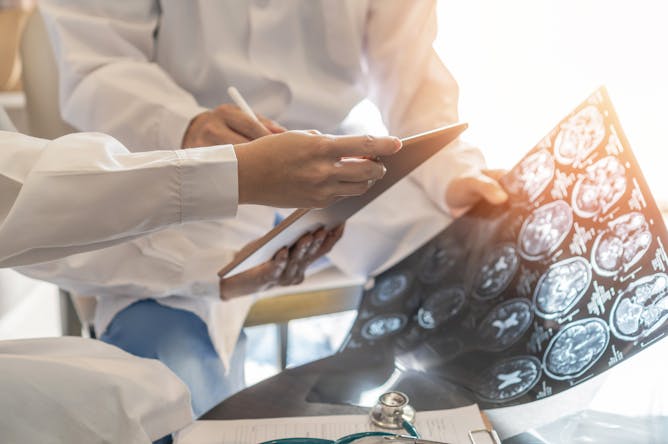
Every brain injury is unique, as is every person’s path to recovery.
Chinnapong/iStock via Getty Images Plus
Hilary A. Diefenbach, University of Colorado Anschutz Medical Campus
Concussions can teach researchers a great deal about how the brain recovers after injury and offer insights into how people can promote brain health throughout their lives.
|
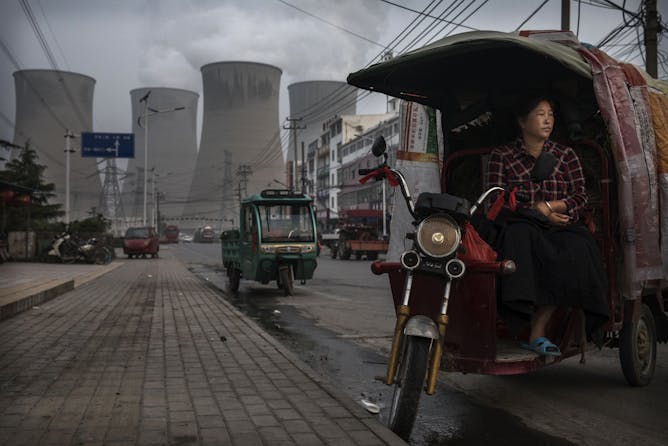
Fossil fuel emissions are still growing in much of the world.
Kevin Frayer/Getty Images
Kate Hua-Ke Chi, Tufts University; Maulik Jagnani, Tufts University
With many countries planning fossil fuel production increases and continuing subsidies, negotiators have their work cut out for them when the COP28 climate summit begins.
|
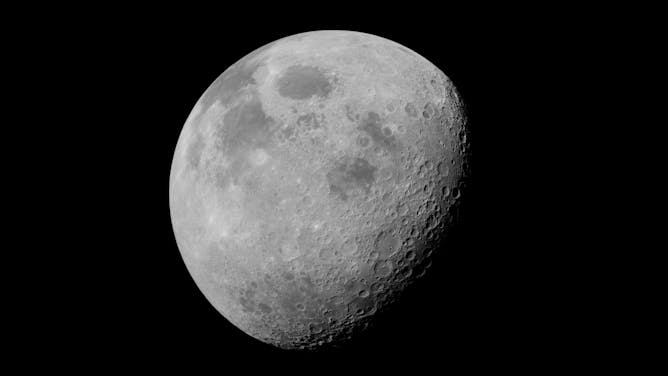
The stark landscape of the Moon as viewed by the Apollo 12 astronauts on their return to Earth.
NASA / The Planetary Society
Paul Hayne, University of Colorado Boulder
Some dark craters on the Moon are never exposed to light − ice could be hiding in these permanently shadowed regions, and India’s Chandrayaan-3 mission marked a big step toward finding it.
|
|
|
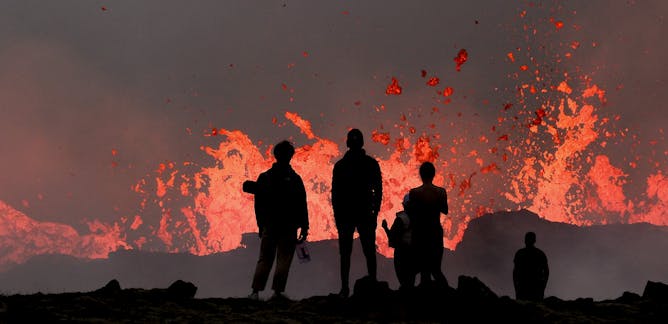
Jaime Toro, West Virginia University
Iceland’s volcanic activity is generally tame compared with explosive eruptions along the Pacific’s Ring of Fire. This time, it’s shaking up a town.
| |

Bill Sullivan, Indiana University
Researchers successfully treated diabetes in mice by engineering cells to make insulin in response to the music of Queen.
|

Natalia Soares Quinete, Florida International University; Olutobi Daniel Ogunbiyi, Florida International University
Scientists discovered PFAS hot spots in the bay and found PFAS in water along the Atlantic coast. In a new study, they traced the chemicals’ origins to help stop the harm.
| |
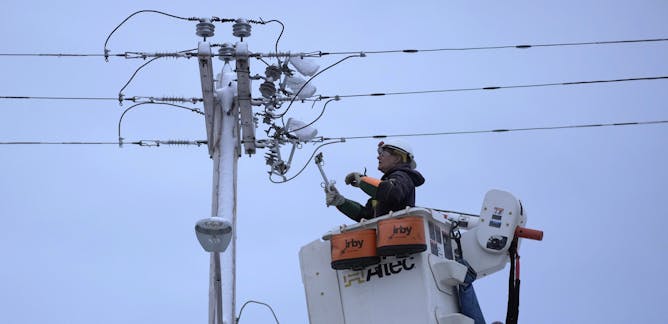
Theodore J. Kury, University of Florida
Power companies can be publicly or privately owned and may report to corporate boards, local governments or co-op members. But there’s no one best way to deliver electricity reliably and affordably.
|
|
|
|
|
-
Leah Chan Grinvald, University of Nevada, Las Vegas; Ofer Tur-Sinai, Ono Academic College
Today’s cars include hundreds of computer chips, and carmakers say the data produced by those chips is proprietary – and a security risk. This means you don’t own the data your car generates.
-
Michael Golding, Texas A&M University
Public health messaging has focused on the drinking habits of the mother during pregnancy. But a growing body of research shows that what dad is drinking before pregnancy matters too.
-
Eli Gottlieb, George Washington University
A new study unexpectedly found a way to help people assess social media posts with less bias and more care – pairing them up with partners who have a different perspective.
-
Adi Foord, University of Maryland, Baltimore County
Scientists are trying to figure out if time travel is even theoretically possible. If it is, it looks like it would take a whole lot more knowledge and resources than humans have now to do it.
-
Susan Barton, University of Delaware
Mulching feeds your lawn and garden with nutrients and organic matter.
|
|
|
|
|
| | |
| | |
| |
| |

|
| |
| |
| |
| |
| |
| |
|
|
|
